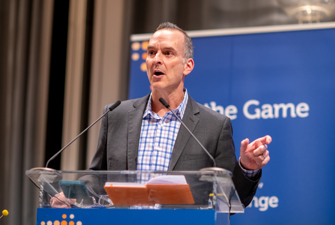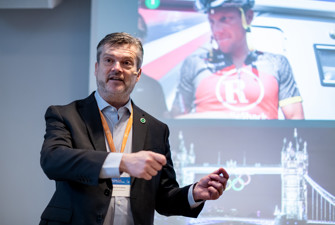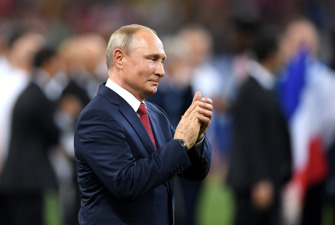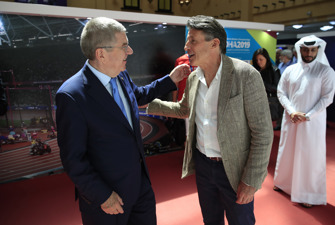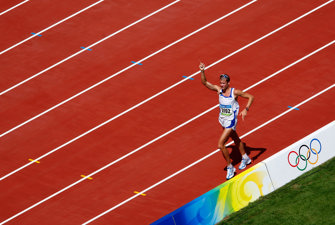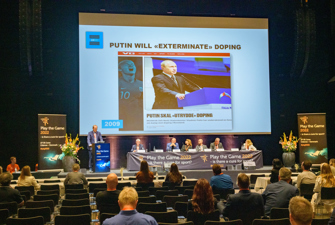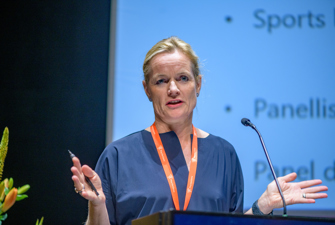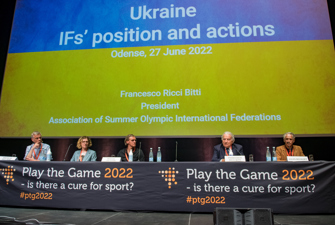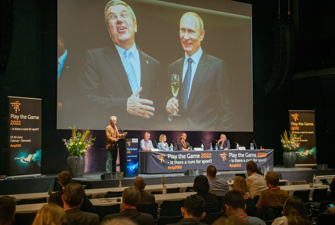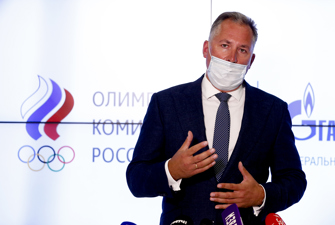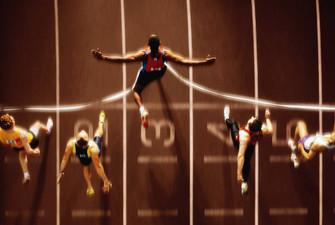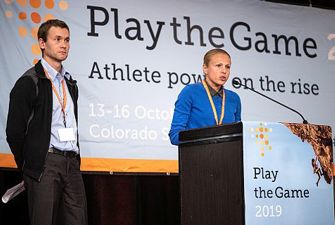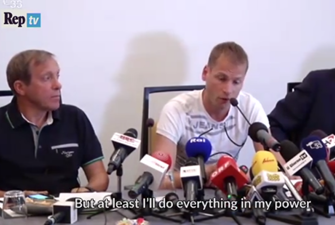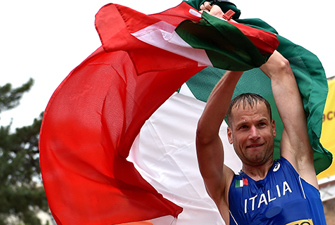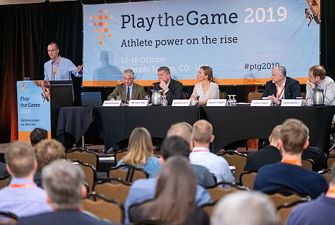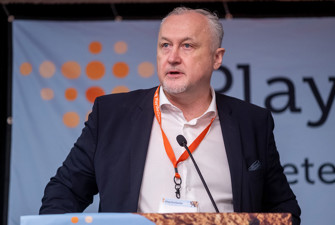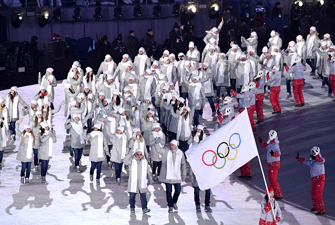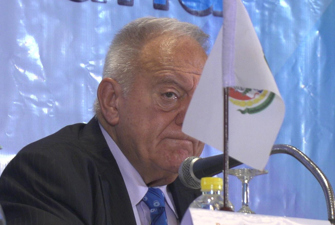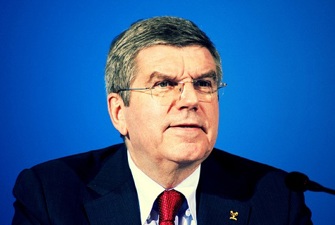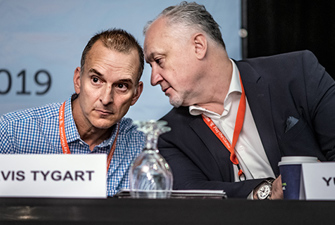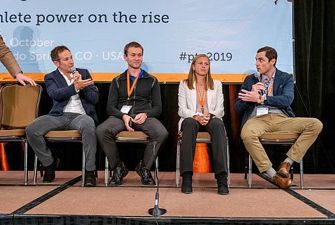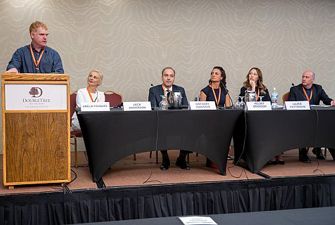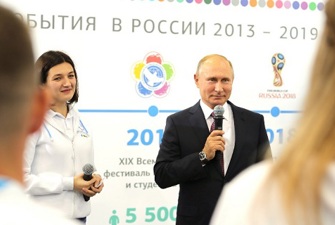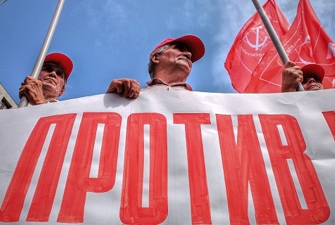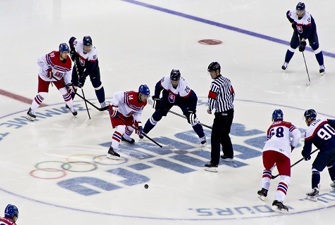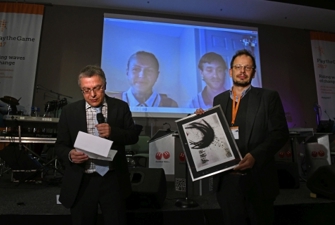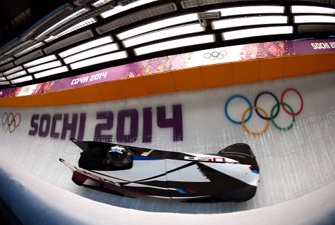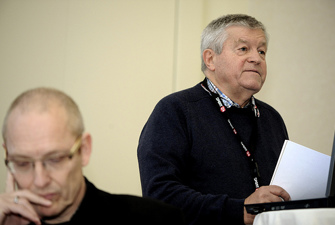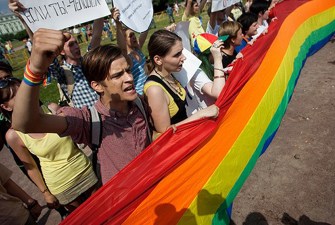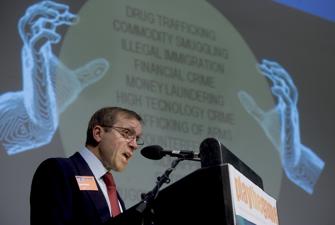The Sochi Games was just a copy of the Moscow Games
For the past year, Jan Jensen from the Danish daily Ekstra Bladet and I have tried to figure out how far back systematised and state-controlled doping in Russia has been going on. What we found is quite disturbing.
In the past two-three years most focus has been on what happened from the Vancouver Winter Games in 2010 – where the Russian team underachieved – until the Sochi Games in 2014 – where the Russian National team made president Vladimir Putin grin after achieving the status of best nation with 33 medals and 13 of them Gold. Six WADA and IOC reports have confirmed that the bad results in Vancouver started a state-sponsored doping program to secure successful Games on home soil four years after.
One of the main sources to these reports have been the Russian whistleblower Grigory Rodchenkov, now world famous for his role in the Oscar winning documentary Icarus, a film by the American film maker Bryan Fogel. What puzzled Jan and I was the timeline of these reports and the lack of historical context.
Several documentaries made by the German journalist Hajo Seppelt have documented that doping was deeply ingrained in Soviet and Russian sports. The stories of the two whistleblowers Yuliya Stepanova, the middle-distance runner who helped expose state-sponsored doping in Russia, and her husband and former doping controller, Vitaly Stepanov, created a global scandal ahead of the 2016 Rio Olympics. A scandal that was prolonged by the many stories told by Grigory Rodchenkov, the former head of the Moscow antidoping laboratory.
But who were responsible for the doping further back in time, we asked ourselves.
After visiting an unnamed Canadian city to speak with former KGB officer Vladimir Popov and interviewing Grigory Rodchenkov through his lawyer Jim Walden, we got some clues. What they told us, independent of each other, was that what we saw in Sochi was just a copy of what was in place before and during the Moscow Summer Games in 1980. Further, it makes the IOC decision to lift the suspension of the Russian Olympic Committee, instituted 5 December 2017, just days after the Games in Pyeongchang, even more wrong. Our findings should lead to further scrutiny of the role of the Russian state in doping in Russia.
In the documentary Icarus we are told that Grigory Rodchenkov, then head of the anti-doping laboratory in Moscow, and in close collaboration with the then Russian Sports Minister Vitaly Mutko and the Russian secret police, FSB (former KGB), organised a doping program the world has never seen before resulting in great success for the Russian team and the political establishment of Russia in the first Winter Games on Russian soil.
The Moscow programme
Last year, Jan Jensen and I came across the former KGB Colonel Vladimir Popov. His name was first known in the media after the Russian historian Yuri Feltshinsky published the book The KGB Plays Chess. In the book we are told that Popov worked as a KGB officer controlling Soviet athletes that participated in tournaments abroad. The German journalist Jens Weinreich also reviewed this book and emphasised the story about how Popov helped Samaranch get elected as IOC president at the IOC Congress during the Moscow Games.
Vladimir Popov left Russia in 1995 afraid of being killed by former KGB colleagues and we had to meet him on a secret location for his own security. We were the first journalists he ever met face to face and his reason for taking time with us was that the he felt that his story should be told. He owed his former KGB colleague Aleksander Litvinenko to let the world know the truth, he told us. The poison attack on the former Russian military spy Sergei Skripal in the English Town of Salisbury this month reminds us why people like Popov and Rodchenkov go into hiding when they want to tell the truth.
At the meeting in Canada, Popov told us how doping was organised before and during the Moscow Olympics. According to Popov, the Moscow scam began in Copenhagen in 1978 during the European Championship in shooting. In Copenhagen, Popov recruited the Head of the Soviet Medical staff, Gennady Markov, as a KGB agent and Markov was given the code name Genin. Two years later, at the Moscow Olympics, Markov was the head of doping control. The Soviet Russian team won 80 gold medals, and these Olympics is one of the cleanest Games ever. Not even foreigners got caught thanks to Markov and his colleagues in the KGB.
Further, Vladimir Popov also told us that the KGB officer Boris Parkin was accredited as doping inspector at the Moscow Games, and his job was to replace the positive tests with clean urine samples, samples collected from the athletes before the Games started. After the 1980 Games, Parkin got the Order of the Red Star, a distinction formerly given only to war heroes. According to Popov, Parkin was embarrassed by receiving the Order. We have tried to contact both Parkin and Markov to ask them about this, but the only answer we got was from the Mayor’s office in Moscow who told us that Markov died of cancer in 2010.
Stanazolol, turinabol and testosterone
Independently, Grigory Rodchenkov confirmed the stories Popov told us, and also told us that he was the successor of Markov at the Moscow laboratory. Through his lawyer Jim Walden, Rodchenkov told us what happened in the Moscow lab during the 1980’s.
During the 1980’s, Rodchenkov says, three persons were instrumental in organising the doping:
Head of the Moscow Lab and member of the IOC Medical Commission Dr. Vitaly Semenov, head of sports medicine and doping control for Goskomsport Anatoly Kovrizhnykh, and Kovrizhnykh’s Deputy, Gennady Markov.
According to Rodchenkov, the doping in Moscow 1980 was not organised exactly the same way as in Sochi 2014, but there were clear similarities. The head of the main laboratory was Vitaly Semenov. Markov was the leader of doping control, and the one who swapped urine samples and the man responsible for obtaining performance-promoting substances was a man called Korobochin, said Rodchenkov. According to our research, Korobochin is now deceased.
“As of the early 1980s, three of the most-commonly used steroids at the time were then undetectable: stanazolol, oral Turinabol, and testosterone. Many, many athletes were using these and other substances,” Rodchenkov told us.
“I was not in the lab during the Moscow Olympics in 1980, but I arrived shortly thereafter. When I got to the lab in 1985, there was wide spread misreporting of positive tests to protect doped athletes. The KGB was often in the lab to assist during major events. The KGB was helping to both swap and substitute clean urine for dirty urine.”
“In the 1988 Seoul Olympics, we were on a boat docked at Seoul. We were helping to protect the athletes by performing pretesting of urine to make sure exogenous testosterone (which became detectable before the 1984 Olympics) was gone.
“After Seoul, Markov and Kovrizhnykh died under mysterious circumstances while both were healthy.”
Have we heard this story before?
More than coincidences?
In Hajo Seppelt’s documentaries the name of Sergei Portugalov is mentioned several times. Portugalov controlled doping in Russian Athletics for many years in the 80's and 90's and created many Olympic gold winners for both Soviet Union and Russia. Portugalov repeatedly denied commenting on the alleged links and was not contacted for comments on the articles in Ekstra Bladet.
“Korobochin was Portugalov before Portugalov,” says Rodchenkov.
There are a number of other similarities between the events in the 80s and the Sochi Games. Including the many sudden and unexpected deaths of people involved in the doping programs. Rodchenkov claims that both Kovrizhnykh and Markov were removed from their positions under suspicious circumstances after the Seoul Games and that they also died suspicious deaths. Rodchenkov was not aware of the information from the mayor's office in Moscow that Markov died of cancer in 2010.
In a similar way, Rodchenkov says in Icarus that the Head of the Russian Anti-Doping Agency (RUSADA), Nikita Kamaev died suspiciously in February 2016, just two months after the doping revelations documented in Icarus. Vyacheslav Sinev, the former chairman of RUSADA also suddenly died the same month.
The similarities between the Moscow Games in 1980 and the Sochi Games in 2014 are more than coincidences. WADA, the IOC, NADOs and other bodies concerned with organised doping should dig deeper into this story. The Russian story detected in recent years is big, but could be even bigger.
Further reading
- Ekstra Bladet article and e-mail correspondence with Gregory Rodchenkov concerning state-sponsored doping in Russia since the 1980’s. (The article is in Danish).
- Ekstra Bladet interview with former KGB-agent Valdimir Popov about the bribing of FIFA and IOC members to secure the 2018 World Cup and the 2014 Winter Olympics. (The interview is in English).







